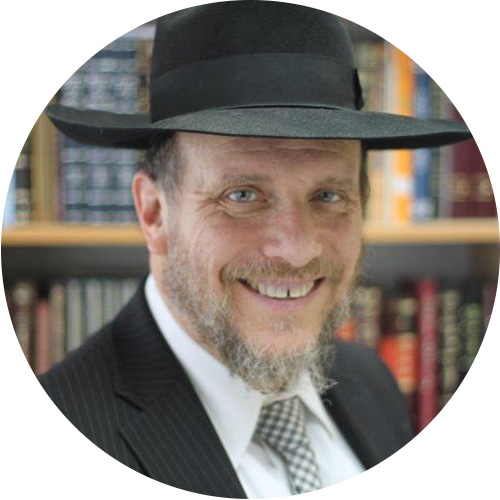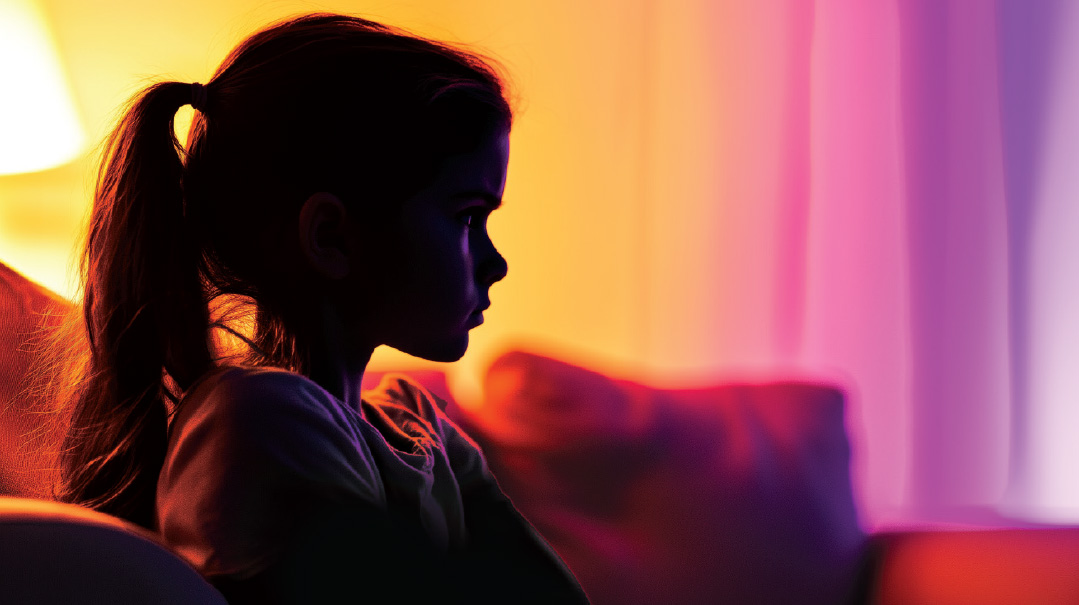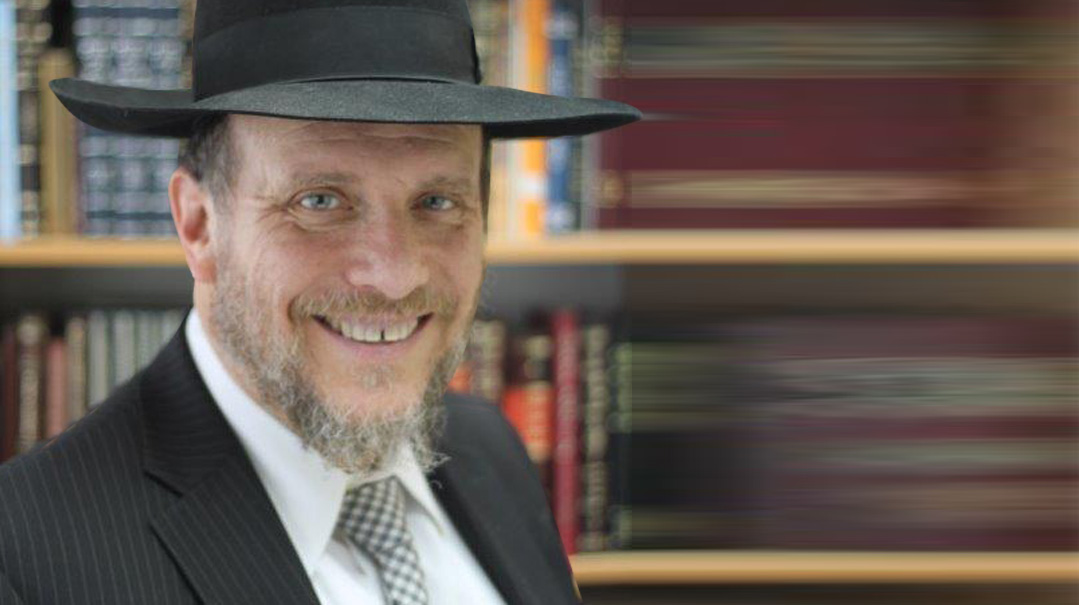“Her Seminary’s Values vs. Our Family’s Values”

When you send your daughter to seminary, you might want to look into the ideals and values that those people espouse

Q:
I try to take a very positive approach to chinuch and toward Klal Yisrael in general, and I work hard to maintain that atmosphere in my home. Recently, my daughter came home from seminary with a long list of all the things she can’t do — what singers she can’t listen to, what styles she shouldn’t wear, what sheitels are not advisable for her to get.
This is just so not in line with what we try to encourage in our house. We value tzniyus and a Torahdig lifestyle, and we have high standards for our family, but we’ve never felt a need to put another mehalech down in the process. How do we reconcile what she’s learned in seminary with our own values?
A:
I am impressed with anyone who retains a positive attitude to chinuch and Klal Yisrael. That is not always so easy to maintain, with so much divisiveness and rampant criticism today. Of course, I assume that your acceptance of other views holds true for all levels of Yiddishkeit, including those more rigorous than your own.
Just after Shavuos, thousands of young women will return home from seminary as the school year comes to an end. It is therefore probably a good idea to discuss this question in some depth.
Let’s begin with: What is the seminary year meant to accomplish? I will try to answer this question as a father of five girls and a principal of 2,300.
Our daughters go through 12 years of mandatory education. Their studies are varied and include limudei kodesh and secular subjects. They are immersed in their school life, home life, and social lives. Some will be inspired, others will be turned off. The vast majority will finish school with a wealth of lessons and experiences, but that will not clearly define which direction their spiritual lives will take, or how they will be shaped and formed.
The year in Eretz Yisrael provides an opportunity that Chazal expound on in Midrash Rabbah and the Yalkut in Bereishis: “There is no Torah like the Torah of Eretz Yisrael, and no chochmah like the chochmah of Eretz Yisrael.” When a young person comes to Eretz Yisrael for full immersion in Torah and chochmah, it opens the possibility of a transformative ruchniyus experience that cannot exist anywhere else in the world (Lakewood included). This is their chance to enhance their appreciation of Torah and Yiddishkeit without some of the serious distractions of home life.
I believe that the seminaries do their best to expand your daughter’s horizons with the intent to inspire and light a fire that will propel them forward in life with greater commitment and enthusiasm.
Seminaries are run by the people who take initiative to be involved in the chinuch of our children. Most, if not all, are men and women who themselves experienced transformative Torah growth. When you send your daughter to seminary, you might want to look into the ideals and values that those people espouse. You can assume that some of those ideals will be in consonance with your own, and some might be a more concentrated version meant to give that boost for life.
I like to compare the seminary year to Rosh Hashanah and Yom Kippur. The Yamim Noraim are intense and demanding; they are potent opportunities for teshuvah and growth. They come at the beginning of the year as a cleansing process for the previous year and a boost for the coming year.
The Torah does not expect people to live on the level of those special days all year round. But is there anyone who would give up the lucidity those days provide? We would hope that the clarity we gain will last as long as possible, keeping us focused on our lives throughout the coming year. On one hand, we know that it will not last forever; on the other hand, we wish it would.
The next question is: How are we as parents meant to guide our children through this experience?
Let’s be honest: If your family buys this publication every week, with full knowledge of all the advertisements that run in these pages, you know your daughter is seeing the societal values presented in ads for Ozempic, plastic surgery, and Pesach programs that take culinary and gashmiyus experiences to new levels. Do you feel the need counter this challenge (which of course does not begin and end right here) with your true value system? Or do you think, “Okay, she saw and heard another opinion,” and hope that your home and values will persevere in her mind?
Are we really concerned that seminaries have taught our daughters that learning a year in Eretz Yisrael after the wedding is more important than the two sheitels that cost the same amount of money? Would we not all be better off if $20,000 sheitels and Ozempic were not fueling the peer pressure on our wives and children? Frum men and women are being programmed to be and look for models instead of wives.
Halevai that those seminary classes would provide enough inspiration to last even one year later, when the first girls begin to deal with those choices. To hear ideas contrary to the paid advertisements of profit-minded industries that incite our basest desires and challenge the very essence of the kedushah our homes seems to me to be a good boost for emes.
There is one aspect that I must say perhaps needs more emphasis. As far as I know, every seminary teaches the halachos of kibbud av v’eim. In addition, they encourage the participation of their students in the “Kabed” initiative, which runs a kinnus and programs to enhance understanding of this colossal mitzvah for all seminary students. There is always room for all of us to further the appreciation of parents and the values of their homes to our students.
IN summary, it is not unusual for a girl or boy to come back from an inspiring time in Eretz Yisrael with new understanding of and appreciation for a higher level of religious commitment. I hope that we as parents can respect that inspiration and even hope that it will last long enough to spur some change in our children’s decisions. At the same time, we in the seminary and yeshivah world should make sure to emphasize that more important than all music, sheitels, and styles is the necessity to treat parents with higher and greater levels of kibbud av v’eim.
I will end with a timeless and important message that I may have already mentioned on these pages, but the review is worth it.
Rav Dessler explains why Chazal say that Eretz Yisrael is only acquired through challenges. He points out that anyone with the slightest spiritual inclination will experience exponential growth when coming to Eretz Yisrael. Then, he continues, there is a risk that he might come to look down at others who have not experienced this growth — which would remove all value of his growth. So Hashem provides him with challenges to humble him so that he will not look down on anyone else and instead be able to properly utilize all that he has gained.
(Originally featured in Mishpacha, Issue 1062)
Oops! We could not locate your form.







